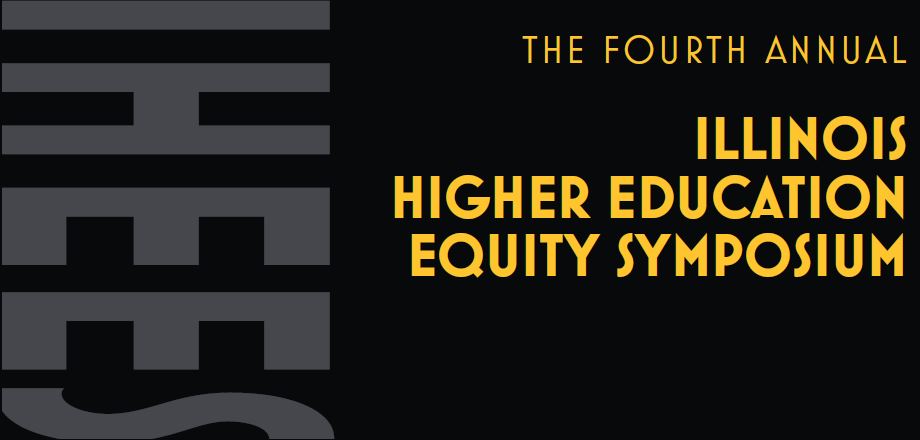Illinois Higher Education Equity Symposium
Presenters
Dr. Dan Mahony
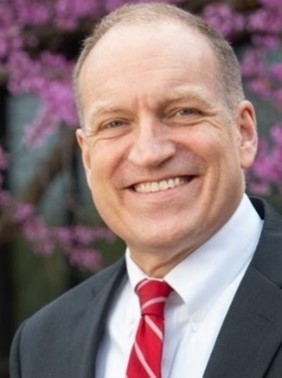
Having worked in higher education for over 25 years, Dr. Dan Mahony has served in roles from professor to president. He is a respected, consultative leader who has demonstrated the ability to bring a community together around shared goals which is why he was chosen to be the 10th President of Southern Illinois University beginning in March 2020.
Originally from Clinton, New Jersey, Dr. Mahony earned a B.S. in accounting from Virginia Tech, an M.S. in sport management from West Virginia University, and a Ph.D. in sport management from Ohio State University. He and his wife Laura have two children, Gavin and Elena.
Before his academic career, Dr. Mahony worked in both public accounting and intercollegiate athletics. He is an active researcher in the areas of sport consumer behavior and intercollegiate athletics.
Dr. Mahony has received many awards for his work. Most recently, he was the 2020 recipient of the Charles Whitcomb Service Award given by the Minority Opportunities Athletic Association (MOAA) which recognizes individuals who foster diversity and inclusion within the intercollegiate athletics community.
Dr. Sheila Caldwell

Dr. Sheila Caldwell currently serves as the Vice President of Antiracism, Diversity, Equity, and Inclusion, and Chief Diversity Officer for the Southern Illinois University System in Springfield, Illinois. She works across the campuses in Springfield, Carbondale, Edwardsville, and East St. Louis to strengthen equity and ensure a level playing field for all students, staff, and faculty members. During her tenure she has collaborated with SIU team members to develop a system-wide Land Acknowledgement Statement, Antiracism Vision Statement, Inclusion Language Guide, and conduct a system-wide campus climate survey. Prior to joining Southern Illinois University in July 2021, Dr. Caldwell served as the inaugural Chief Intercultural Engagement Officer for Wheaton College. She collaborated across the college to create the first Christ-Centered Diversity Commitment Statement, Flourishing for All Diversity Strategic Plan, and Gender Equity Vision Statement. During her tenure, she also implemented, expanded, and sustained faculty mentoring programs, inclusive hiring training, and employee strategic advisory councils for Asian, African American. and Latinx faculty and staff members.
Most recently, she has received notable awards for championing diversity, equity, and inclusion efforts. The SIU System is the only system in the country to receive the 2022 Higher Education Excellence in Diversity Award. She has been honored by the Quad County Urban League as a 2020 Women of Power Honoree and by SHE Chicago for Strong, Humble, and Empowering leadership. Caldwell earned a Doctorate in Education from the University of Georgia. She completed Harvard Kennedy School Strategies for Building and Leading Diverse Organizations Executive Education program.
Dr. Lisa Castillo- Richmond

Dr. Lisa Castillo-Richmond has served as Executive Director of the Partnership for College Completion (PCC), a leading Illinois nonprofit dedicated to eliminating degree completion disparities and advancing equity in higher education. She joined the PCC executive team at its inception in 2016 as founding Managing Director and assumed the Executive Director role in 2021.
Under her leadership, PCC has evolved into a nationally recognized voice for racial and socioeconomic equity in higher education, driving policy initiatives, publishing influential research, and advocating for increased state investments in institutions and need-based aid. Dr. Castillo-Richmond has also served as a commissioner on Illinois’s Equitable Funding Commission for Public Universities and frequently testifies before state legislators to advance equitable funding policies.
As a first-generation college graduate, she brings personal insight into the hurdles students face, and she views PCC’s work as anchored in collaboration, data-driven strategy, and systemic transformation.
Paul Kendrick

Paul Kendrick is the Director of Program Strategy for Hope Chicago, where he designs and implements initiatives that support debt-free college access for students and their families in Chicago’s South and West Sides.
Before joining Hope Chicago, he led the grassroots organization Rust Belt Rising, steering voter mobilization in battleground states and helping register over 130,000 volunteers. His background also includes roles in the Obama White House and the Pritzker for Governor campaign. Paul brings academic expertise to his work as an adjunct professor at National Louis University and co-authored "Nine Days: The Race to Save Martin Luther King’s Life and Win the 1960 Election" with his father.
Dr. Lisa Freeman

Dr. Lisa C. Freeman serves as the 13th President of Northern Illinois University, officially stepping into the role in September 2018 after serving as Acting President since July 2017
myniu.com. In her leadership, she champions NIU’s mission, focusing on advancing social mobility, fostering high‑impact scholarship, engaging with the region, and cultivating an inclusive environment where students, faculty, and staff from diverse backgrounds feel welcome and supported.
Before becoming president, Freeman built a strong academic and administrative foundation at NIU and beyond. She joined NIU in 2010 as Vice President for Research and Graduate Studies and Professor of Biology. She later served as Executive Vice President and Provost, overseeing Academic Affairs, Human Resources, and Student Affairs. Prior to NIU, she spent 16 years at Kansas State University in roles including Associate Dean for Research and Graduate Programs and Associate Vice President for Innovation at K‑State Olathe, where she emphasized interdisciplinary collaboration, public‑private partnerships, and workforce development.
Dr. Freeman holds distinguished academic credentials and has earned national recognition for her leadership and scholarship. She earned a B.S. in 1981, followed by an M.S. and a D.V.M. in 1986 from Cornell University, then completed a Ph.D. at The Ohio State University in 1989. She also conducted postdoctoral research at the University of Rochester School of Medicine and was a Fellow of the American Council on Education (ACE) at the University at Buffalo for the 2004–05 academic year. Honors include being named Outstanding Veterinarian of the Year by the Association for Women Veterinarians in 2002, recognition among the Top 50 Women Leaders in Education in 2023 and 2024 by Women We Admire, and membership in The Chicago Network. She also serves on several boards, including Altus Academy, Brookfield Zoo, Campus Compact, the DeKalb County Economic Development Corporation, the DeKalb Area Agricultural Heritage Association, and the Universities Research Association.
Ruben Abarca

Ruben Abarca serves as Head of Partnerships at the Discovery Partners Institute (DPI), the University of Illinois System’s tech workforce development and applied research hub in Chicago.
In this role, he leads outreach and collaboration with corporate partners to deploy diverse and underrepresented tech talent into top employers across Chicago’s ecosystem, significantly advancing equity in tech careers. His strategic work has doubled the salaries of many trainees placed through DPI’s workforce programs and earned him recognition as a Notable Latino Leader by Crain’s Chicago Business in 2024.
Melinda Brock

Melinda Brock serves as Operations Manager at the American Institute for Boys and Men (AIBM), the nation’s first nonpartisan research and education organization dedicated to improving outcomes for boys and men. In this role, she also leads the Higher Education Male Achievement Collaborative (HEMAC), a joint initiative between AIBM and the University of Tennessee, Knoxville. HEMAC addresses the troubling decline in male enrollment and completion in higher education, applying rigorous research to guide public policy and institutional response.
Before joining this field, Melinda built her career in the private sector, helping scale high-growth potential software companies. During the COVID-19 pandemic, she pivoted to education, teaching high school business and computer science, a shift that deepened her insight into the issues facing today’s boys and young men. She earned her Master of Science from Carnegie Mellon University’s Heinz College of Information Systems and Public Policy, and holds a Bachelor of Arts in Political Science from the University of Tennessee.
Kofi "Kizzle" Forson

Kofi “Kizzle” Forson is the inspiring founder of Express Yourself Black Man (XYBM) and the creator of the A Black Man’s Safe Haven platform. XYBM has grown into the largest holistic healing initiative for Black menby Black men, comprising a podcast (over 120 episodes), active social communities (440,000+ followers), and powerful mental health resources.
A Black Man’s Safe Haven is a groundbreaking holistic healing app that connects Black men with Black mental health professionals, offers peer support (200–250+ men), and includes robust features like affirmation generators, a healing library, and weekly moderated sessions, empowering users to engage with their mental wellness without the stress of traditional therapy settings.
Kizzle is also the author of From Hurting to Healing: A Black Man’s Guide to Feeling, an ebook that marks his deeper dive into advocacy and education for mental health among Black men. His own journey through hardship, particularly during the pandemic, fueled his mission to create accessible, culturally affirming healing spaces, emphasizing that “vulnerability is a strength” and no man should heal alone.
Cherita Ellens
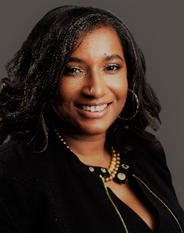
Cherita Ellens is the President & CEO of Women Employed, a leading advocacy organization in Chicago dedicated to advancing economic equity for working women for over five decades. A native Chicagoan, longtime advocate for women, youth, families, and a caregiver herself, Cherita views her purpose as empowering marginalized communities toward self-sufficiency and agency.
Under her leadership, Women Employed has been instrumental in shaping and enacting policies such as paid leave, salary transparency, “no salary history” laws in Illinois, fair scheduling, workplace harassment protections, and a strengthened minimum wage, especially focused on closing the wealth gap at the intersection of gender and race.
Before assuming her current role (effective February 11, 2019), Cherita served as Executive Vice President for Skills for Chicagoland’s Future and held leadership roles within the YMCA, including Executive Director of the South Side and Wabash YMCAs and VP of Marketing & Membership for the Metropolitan Chicago branch, bringing expertise in strategy, communications, operations, and community engagement. She holds an Executive MBA from the University of Notre Dame and a Bachelor of Science in Speech Communications from Illinois State University.
Dominique McKoy
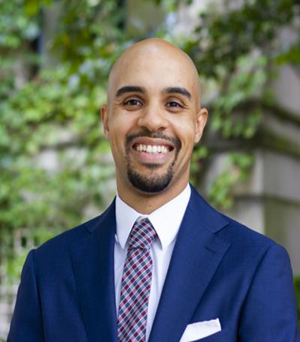
Dominique “Dom” McKoy is the Executive Director of The To&Through Project at the University of Chicago’s Urban Education Institute; a research-to-action initiative focused on improving educational outcomes across the path from middle school through college for Chicago Public Schools students.
Originally from Portland, Oregon, Dom moved to Chicago in 2011 to mentor 9th-grade students on the city’s South Side, sparking a career-long commitment to equity in education. He later served as Deputy Director of To&Through and as Director of School Partnerships at OneGoal Chicago before becoming Executive Director. Dom earned his Master of Arts in Public Policy from the Harris School at UChicago and his BA from Kenyon College.
Through his leadership, To&Through supports school and system leaders with high-quality data and inquiry tools, fostering meaningful dialogue to dismantle inequity and build postsecondary pathways that students can access with both agency and dignity. In recent findings, the project highlighted meaningful shifts in educational attainment among CPS students, projecting that if current trends hold, 31% of 2023 9th-graders will earn a college credential within 10 years, compared to just 6% in 2006; while also pointing out persistent gaps, particularly for young Black men who are projected at 12% completion rates. Dom also serves on the board of Project OneTen, a mentoring program supporting young men of color in transitioning to high school. He’s also known to enjoy gardening and pick-up basketball when Chicago isn’t freezing.
Dr. Christopher Quinn
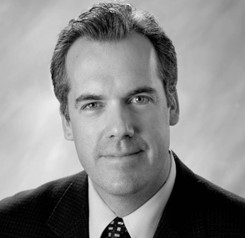
Dr. Christopher Quinn is the Chief Operating Officer at Nearpeer and has been a leader in higher education and educational technology for over 20 years. Christopher has held high-level executive roles at small private colleges, large online institutions, and international universities, and he has served seventeen years as a college president in the Northeast.
Christopher has worked in both the nonprofit and for-profit sectors, and he has an established track record as a successful entrepreneur in multimedia curriculum and educational technology. Christopher has been integral to Nearpeer's rapid expansion across a wide range of campuses including community colleges, HBCUs, HSIs, AANAPISIs, faith-based institutions, online institutions, and private colleges.
Bruce King
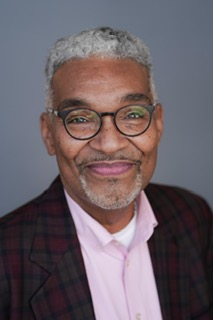
Bruce King’s professional career in higher education has been devoted to making a difference in the lives of young people so they can pursue a pathway to opportunities and experiences unknown by previous generations. As a first-generation college student from the Southside of Chicago, he continues to believe in education as the great level of life’s playing field creating greater access to personal and professional achievement. He also works to create and support inclusive work cultures and has experience in educational leadership, talent acquisition, and strategic planning.
King is currently working with the National Association of Higher Education Systems (NASH) and has recently served as Vice President for Equity and Inclusion at Elmhurst University in Elmhurst, Ill., and was previously Associate Vice Chancellor for Racial Equity at City Colleges of Chicago. Before that, he served for 13 years at St. Olaf College, Northfield, Minn., where he held the titles of Vice President for Equity and Inclusion and Assistant to the President and Chief Diversity Officer.
Throughout his career, King has worked to improve access and overall campus culture for people of diverse ethnic, racial and religious identities. He has drawn on his experience to support strategic planning and leadership for a wide range of initiatives around diversity, equity, and inclusion. During his distinguished career, he has worked to create both administrative and physical spaces on college campuses where equity and inclusion thrive.
King has been a leader in professional organizations including the Consortium for Faculty Diversity (CFD) and the National Association of Diversity Officers in Higher Education(NADOHE). King is also an enthusiastic advocate for organ donation having received a live-donor kidney in 2007. He has served on the LifeSource Organ Procurement Organization in the Upper Midwest Board of Directors and currently serves on the Gift of Hope Organ and Tissue Board of Directors serving Illinois.
King holds a Bachelor of Science degree from Iowa State University and a Master of Social Work from the University of Iowa in Iowa City. He lives in Chicago.
Deborah Santiago
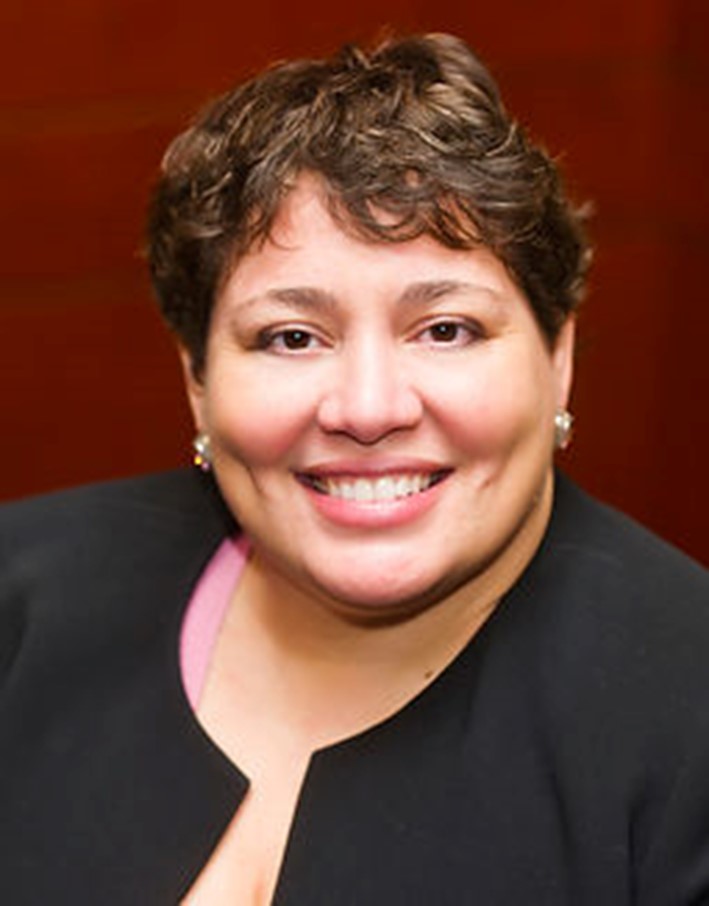
Deborah A. Santiago is the Co-founder and Chief Executive Officer of Excelencia in Education, America's premier authority on efforts accelerating Latino student success in higher education. As an innovator, thought leader, and educational visionary, she has led research and advanced evidence-based practices and strategies for more than 20 years. She has held leadership positions with education organizations around the country, including the White House Initiative on Educational Excellence for Hispanic Americans and the Los Angeles Alliance for Student Achievement.
She co-founded Excelencia in Education in 2004 to inform policy, compel action, and collaborate with those ready to accelerate student success with an unapologetic Latino lens. Among her many contributions, Deborah has addressed federal legislative issues in higher education at the Congressional Research Service and informed program and policy implementation at the U.S. Department of Education. She also improved awareness and education opportunities for Latinos with federal agencies as the Deputy Director of the White House Initiative on Educational Excellence for Hispanic Americans. Among Deborah’s community efforts, she has provided program design and implementation for dropout prevention and parental engagement for the ASPIRA Association and translated data for community engagement at the Los Angeles Alliance for Student Achievement.
As CEO, Deborah leads Excelencia’s programming and engagement efforts, including expanding and leveraging community-informed research in improving educational opportunities for students, working directly with education leaders, and informing campus practices as well as state and federal policies. Driven by a deep desire to advance asset based, student-centered understanding of the needs and opportunities for the Latino community, Deborah is a sought-after speaker about Hispanic Serving Institutions, college affordability, and equity in higher education. Her work has been cited in numerous publications, including The New York Times, The Washington Post, The Economist, and The Chronicle of Higher Education. She serves on the Advisory Board of TheDream.US. and the technical panel for the Carnegie Classification led by the American Council on Education.
Ravan Hawram
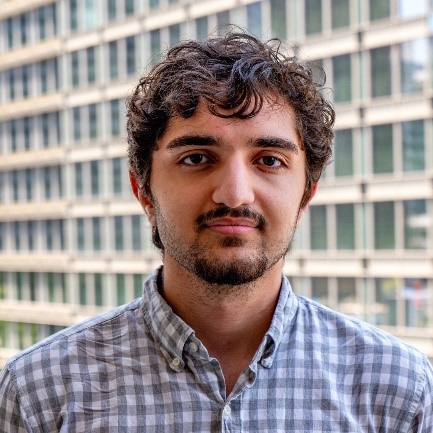
Ravan Hawrami is a senior research assistant at the American Institute for Boys and Men, covering subjects like men in higher education as well as employment trends. On higher education, he has covered topics like enrollment in doctoral programs and majors of choice, and he also created a data tool for studying male trends in higher education, from admissions and enrollment to completion and earnings.
Dr. DeWitt Scott
Brian Barney

Brian Barney was born in 1976 in Chicago, Illinois. He started his education at De La Salle High School and continued at Chicago State University before beginning a career in technology. Brian’s first professional role was as an assistant manager at Prometheus Technologies, and he has since transitioned to other IT roles with Smart Technology Services, growing from an in-house technician to a network technician for Chicago Public Schools Central Office, managing all network printers.
Today, he works as a consultant handling small IT projects while raising two boys, together with their mother. Brian’s oldest is a Hope Chicago scholarship recipient, currently enrolled in his third year at University of Illinois Urbana-Champaign, and his youngest is in grammar school. Brian is also a Hope Chicago Parent Scholar, pursuing a degree in Cybersecurity at National Louis University. His biggest goal is to finish his education to open doors to greater opportunities, provide for his family, and be a positive role model for his children by showing them the value of hard work, learning, and perseverance.
Brian describes himself as a laid-back, warm, and social person. As a true Chicago native, Brian is a big sports fan, cheering on the Bears, Bulls, and White Sox all year long.
Darryl Cherry

Darryl C. Cherry has spent 25 years advocating for access and equitable support for college-going students. He currently serves as Coordinator of Student Retention at Southern Illinois University Edwardsville where he develops, implements, and oversees programming and supports students in overcoming social, academic, and cultural barriers/challenges to assimilate, matriculate and graduate from with their college degree.
Prior to his current role, Mr. Cherry served as a TRIO Upward Bound Counselor at St. Louis Community College before transitioning to serve as the Director for two TRIO Upward Bound Programs at Southern Illinois University Edwardsville - East St. Louis Higher Education Center.
He earned his Bachelor of Arts in Communication from University of Illinois Urbana-Champaign and later a double Master of Arts in Business Management and Computer Information & Resource Management from Webster University.
Darryl serves on the national, regional, local, and university levels to implement and support equity-minded student engagement, advising, development, and support. His professional involvements include membership in NASPA and Student Affairs Administrators in Higher Education (NASPA) and co-chair of SIUE’s First-Gen Forward efforts to engage and support first-generation students, a member (and former chair) of NACADA’s Advising Communities Division Steering Committee, First Generation Advising Community Steering Committee, and Advising First-Year Students Advising Steering Committee. Mr. Cherry currently serves as the Vice-President for Staff of Southern Illinois University Edwardsville’s Black Faculty and Staff Association.
He is a proud member of 100 Black Men of America (Metropolitan St. Louis Chapter) and serves as the Regional Chair for Collegiate 100 as well as the Advisor and Mentor for the Collegiate 100 of Southern Illinois University Edwardsville. He is also proud member of Omega Psi Phi Fraternity (Nu Chi Chapter) where he strives to live out the fraternity’s motto “Lifting As We Climb.” He is an Elder at New Life Community Church (East St. Louis, IL) striving to impact and “Build Strong Families” in his servant-leadership roles.
Jaden Barney
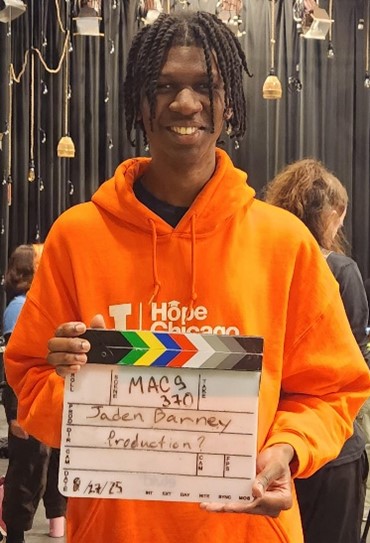
Jaden Barney is a Junior at the University of Illinois Urbana-Champaign where he majors in Media and Cinema Studies. He is active on campus through involvements that include The Bousfield Hall Council and serving as a Program Advisor for academic initiatives. Jaden is also a regular participant in UIUC’s Hope Chicago events and programs.
Holly Plfum
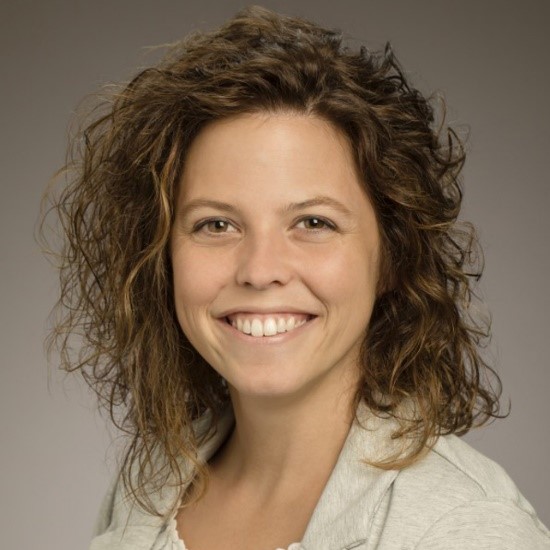
Holly has served as the Assistant Director of Transfer Outreach and Initiatives for the University of Illinois System since 2021. Her role includes leading initiatives that aim to benefit the transfer student population who matriculate into any of the three U of I universities. Holly was a former transfer student herself, a catalyst for her work to eliminate barriers that transfer students face from enrollment to completion. She’s held previous roles in transfer admissions/recruiting, program management, and academic advising.
Initially serving as a System Lead in the first cohort of the NASH Transfer Student Success NIC, Holly was drawn to the utilization of Improvement Science methodology as a possible means to solving inefficiencies in transfer student processes. She has since taken on the role of Improvement Coach for the NASH Transfer NIC, serving as coach to four systems in the third cohort of the community during the 2024-25 program year.
Symposium Data Points
-
According to the Illinois Board of Higher Education (IBHE) 2019 Data Analysis Equity Gap Report:
-
College enrollment has dropped 34% for African American students in Illinois.
-
Rural high school students are more likely to enroll in a community college after high school graduation (66% compared to 47% of students from non-rural communities).
-
Only 53% of economically disadvantaged high school graduates go to college within 6 months compared to 74% of students who are not eligible for Pell funding.
-
African American, low-income, and rural students have less access to advanced placement (AP) programs than their White counterparts.
-
African American, Latino/Hispanic, and low-income students are more likely to be placed in developmental education in two-year and four-year colleges in the state of Illinois.
-
White college freshman advancement rates to sophomore class status are 70% compared to 53% for Latino/Hispanic students and 33% for African American students.
-
Advancement rates from freshman to sophomore class status are 71% for students who do not receive Pell funding compared to 49% for low-income students who are Pell-eligible.
-
2019 Public Universities' college completion rates were highest for White students at 70%, followed by equity gaps with Latino/Hispanic students' graduation rates at 52%, and African American students at 38%.
-
Graduation rates for low-income students are 50% compared to 74% for students who do not receive Pell funding.
-
Approximately 19% of rural county residents hold bachelor’s degrees compared to 37% of non-rural county residents.

Contact
Events and Outreach
- Phone:
- (618) 536-7751
- Email:
- conferenceservices@siu.edu
